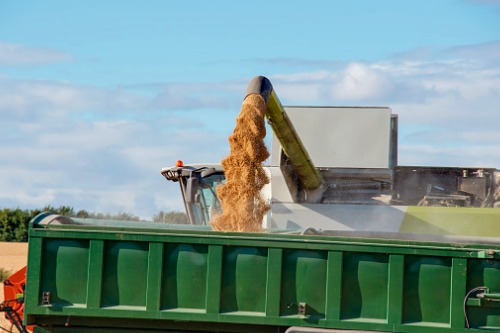QBE Blog: How support from the financial services can help drive policy changes on food security

Anna Taylor, Director at the Food Foundation talks about how support from the financial services sector can help drive policy changes on food security
At QBE, we want to improve the resilience and preparedness of our communities by raising awareness around risks so that people are better equipped to protect themselves. That’s why in 2023, the QBE Foundation donated £50,000 to the University of Kent’s Right to Food programme via a partnership with the Food Foundation, a leading UK charity looking to develop, propose and promote modern food policies that are better for consumers and the food system as a whole.
One of several live campaigns, the Food Foundation is working with the University of Kent to make food and food security a central pillar of the institution’s civic mission – and to further their ambition to become the world’s first ‘Right to Food’ university. The university is making plans to use the physical estate to further enhance food security by building an extensive biodiversity footprint, community garden and cooking hubs for local schools, community kitchens and local social enterprises to hire at low cost.
QBE’s recent donation to the Food Foundation has brought the topic of food security into sharper focus, and Anna Taylor, Director at the Food Foundation, was on hand to tell us more about the connection between food security, business risk management and the role financial services can play in building a more resilient future for food security.
Food security in the UK
In the UK, the Food Foundation examines food security at both a national and international level in terms of whether we, as a nation, have security in our supply chains. The UK grows around half of the food that we eat, and the rest is imported – so the extent to which our supply chains are threatened by climate events and geopolitics is significant, and each risk area affects different parts of our supply chains in different ways.
The last few years have presented the UK with issues such as labour constraints, to some extent triggered by Brexit, alongside input costs and pressure from supermarkets on farmers to absorb inflationary costs.
There is a risk that these combined effects may push farmers to stop producing, increasing our import dependence. The UK is already very dependent on imports as around 85% of our fruit is imported and around 40% of our vegetables.
Several of the countries that we’re heavily dependent on for imports, such as Spain and Morocco, are extremely vulnerable to climate effects.
From another angle, we also know that for those on a low income, it’s much harder to eat a diet which protects your health; unhealthy calories are around half the cost of healthy calories. This is fuelling a diet-related disease crisis in the UK. Poor diet is the biggest cause of preventable disease and death in the UK.
Integrating food security goals in the financial services sector
While the financial services sector has not traditionally been part of the multi-stakeholder dialogue around food system transformation in the UK and beyond, this industry has significant potential to help these systems evolve.
By paying closer attention to the structures and systems of national and global food security, financial services firms may also develop models to track not only the physical effects of extreme events, but also their economic and social impacts.
The Food Foundation has been working with several partners to examine the risks which are baked into the food industry and supply chain. For example, one perspective is the link between obesity and poor productivity. We’re seeing record numbers of people out of work in the UK due to long-term health conditions; a lot of that is connected to diet, unhealthy weight, and diet-related diseases. What that means for the national workforce and the productivity of businesses in the UK is quite considerable.
Financial risks in the food chain
A failure to shift towards healthier and more sustainable diets creates a range of different financial risks for food businesses – systemic, direct, and transitional. In the latest Plating Up Progress policy briefing, the Food Foundation explores the material financial risks associated with this failure and looks at how dietary transitions are being supported by businesses across their portfolios.





